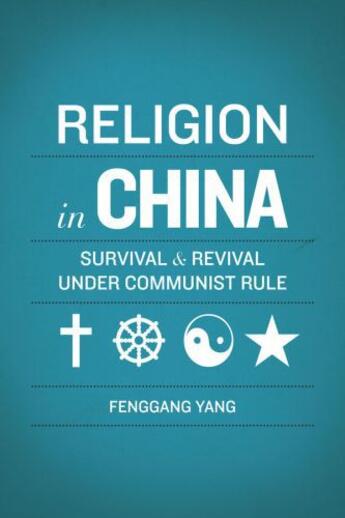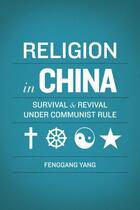-
Nombre de pages : (-)
-
Collection :
(-)
-
Genre :
(-)
-
Thème :
Non attribué
-
Prix littéraire(s) :
(-)
Résumé:
Religion in China survived the most radical suppression in human history--a total ban of any religion during and after the Cultural Revolution. All churches, temples, and mosques were closed down, converted for secular uses, or turned to museums for the purpose of atheist education. Over the... Voir plus
Religion in China survived the most radical suppression in human history--a total ban of any religion during and after the Cultural Revolution. All churches, temples, and mosques were closed down, converted for secular uses, or turned to museums for the purpose of atheist education. Over the last three decades, however, religion has survived and thrived even as China remains under Communist rule. Christianity ranks among the fastest-growing religions in the country, and many Buddhist and Daoist temples have been restored. The state even sponsors large Buddhist gatherings and ceremonies to venerate Confucius and the legendary ancestors of the Chinese people. On the other hand, quasi-religious qigong practices, once ubiquitous, are now rare. All the while, authorities have carried out waves of atheist propaganda, anti-superstition campaigns, severe crackdowns on the underground Christian churches and various ''evil cults.'' How do we explain religion in China today? How did religion survive the eradication measures in the 1960s and 1970s? How do various religious groups manage to revive despite strict regulations? Why have some religions grown fast in the reform era? Why have some forms of spirituality gone through dramatic turns? In Religion in China, Fenggang Yang provides a comprehensive overview of the religious change in China under Communism.
Donner votre avis















